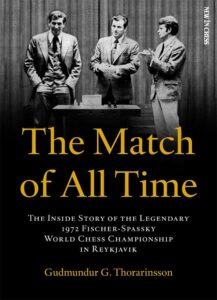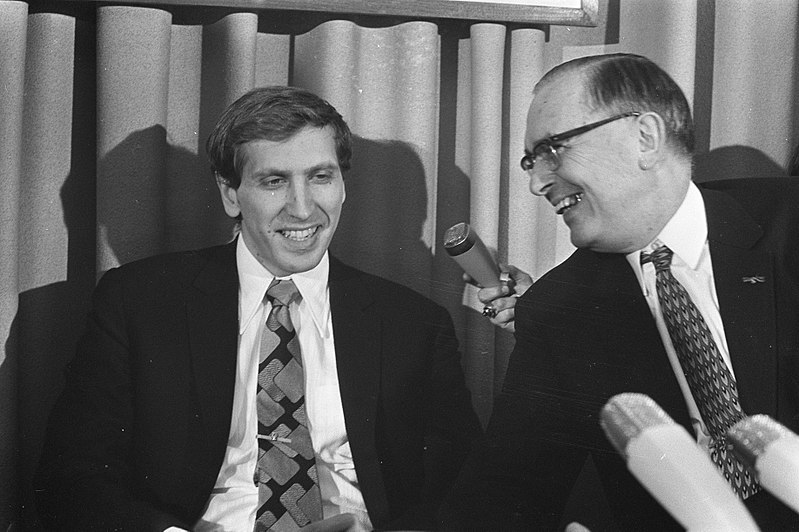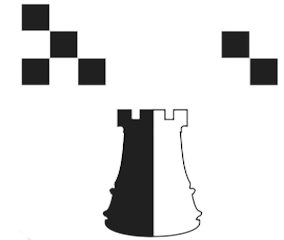No American made a greater impact on chess than Bobby Fischer, and his phenomenal ability would be reduced to an interesting series of chess tales had he not captured the World Chess Championship in the most-watched chess match ever. The Cold War implications of the 1972 match brought attention to chess from the whole world, including millions of people who had never played the game.

Gudmundur Thorarinsson’s book, The Match of All Time, featured as New in Chess’s eBook of the Week for this week, describes in brilliant detail the intrigue, luck, and phenomenal effort that allowed this match to be played. No one was in a better position to record the drama: Mr. Thorarinsson was the President of the Iceland Chess Federation at the time the small island nation produced the winning bid for the match, and it was Mr. Thorarinsson who negotiated with all the parties involved with the match that changed the chess world forever.
The Match of All Time sets forth the context of the match, provides excellent short biographies of Fischer’s predecessors as World Chess Champion, and describes coherently and concisely the personalities of the parties who made the match a reality. Thorarinsson’s perspectives are fascinating, as he was the organizer of the event and ultimately responsible for all its details. While he was never privy to the discussions taking place in America or the Soviet Union, he was the force that brought the two sides together despite the many obstacles thrown up by the American player and the leadership and bureaucracy of the Soviet Union.
The Soviet World Champion, Boris Spassky, described by everyone who knows him as a perfect gentleman and sportsman, wanted to play the match. His score against Fischer up to the point of the match (three wins, two draws, no losses) gave him confidence. Soviet leaders, however, were more concerned with keeping the championship title a Soviet possession, which it had been since 1948. Those who ran the Soviet Union needed to be convinced, both by its own citizens and by the match organizers, to allow Mr. Spassky to play against Fischer, who flouted the norms and rules of the sanctioning body of chess, FIDE.
Of course, dealing with Fischer was not easy. He refused to commit to play and made demands of the organizers, which became more strident as negotiations lurched forward. Even by the time of the opening ceremony, it was not clear that Fischer would board the airplane in New York to come to Iceland to play. With the intervention of National Security Advisor (and later, Secretary of State) Henry Kissinger, Fischer finally showed up. Thorarinsson describes his involvement in getting leaders of the greatest antagonists of the Cold War to agree to have a chess match played.

Thorarinsson criticizes the United States for the way it treated Fischer late in his life, complaining that our country wanted to incarcerate the chess hero it had celebrated in 1972. It is true that Fischer was indicted by a District of Columbia grand jury for alleged crimes committed by playing chess in former Yugoslavia. It is also true that he was not indicted during the George H.W. Bush administration, when the match was played, and was not indicted during the eight years of the Clinton presidency.
It was not until years later, after Fischer commended the 9/11 attacks on the United States, that the George W. Bush administration decided to prosecute Fischer. (Boris Spassky, who performed the same acts as Bobby Fischer, and as a French resident was subject to the same UN sanctions as pertained to Fischer, was never charged with a crime.) However, as a chapter of Julius Kaplan’s legal memoir, Secrets and Suspense, suggested, the prosecutors had no great interest in putting him in jail but wanted to confiscate much of Fischer’s money.
Nobody but Thorarinsson could have written this book, and its value for the posterity of chess history cannot be matched. It is wonderful for the game that he wrote the book, and it will be a valuable resource for chess historians to come.
